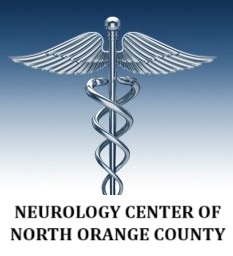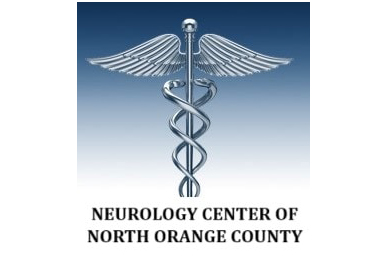Top 7 Breakthroughs in Alzheimer’s Research in 2025
Why Alzheimer’s Research Matters in 2025
Alzheimer’s disease research has become one of the most pressing areas in modern medicine. In 2025, millions of people worldwide are living with Alzheimer’s disease, which remains one of the leading causes of dementia and death among older adults. Alzheimer’s is currently ranked as the seventh leading cause of death in the United States. Despite growing awareness, the disease still lacks a cure.
As family members and caregivers continue to provide support for people living with dementia, the need for more research, innovative treatments, and early detection tools becomes critical. Fortunately, the last year has brought new hope. From gene therapy to AI-powered diagnostics, breakthroughs are beginning to reshape how we understand and treat this disease. The FDA has approved lecanemab (Leqembi) and donanemab (Kisunla) for people with mild Alzheimer’s disease. Alzheimer’s disease can significantly affect the brain’s structure and function, leading to cognitive decline.
These efforts are not just academic. The disease can begin affecting the brain years before symptoms appear. They aim to protect a person’s memory, reduce symptoms, slow progression, and ultimately end Alzheimer’s as a threat to brain health.
Alzheimers research is now focused on identifying root causes, reducing risk factors, and developing therapies that can intervene before severe cognitive decline.
Understanding Alzheimer’s: Stages and Progression
Alzheimer’s disease is a complex, progressive disorder that gradually affects a person’s memory, thinking, and behavior. The disease unfolds in several stages, each marked by distinct symptoms and changes in the brain. In the earliest, preclinical stage, individuals may not notice any symptoms, but harmful changes—like the buildup of amyloid plaques and tau tangles—are already beginning. Beta-amyloid is produced from a ‘parent protein’ in two steps performed by different enzymes. These proteins, including the amyloid precursor protein, play a key role in the disease process by disrupting communication between brain cells.
As Alzheimer’s progresses, mild cognitive decline becomes more noticeable. People may experience memory loss, confusion, and difficulty with everyday tasks. In the moderate stage, symptoms worsen, affecting language, reasoning, and even behavior. By the late stage, individuals often require full-time care as the disease impacts all aspects of daily life.
Researchers are working hard to understand how beta amyloid plaques and tau tangles drive the progression of Alzheimer’s. Ongoing clinical trials are testing new treatments aimed at slowing or halting these changes in the brain. By targeting the underlying proteins and the disease process itself, scientists hope to develop therapies that can protect brain health and improve quality of life for those affected.
1. Blood-Based Biomarkers for Early Diagnosis
Blood-based biomarkers are redefining the early stages of Alzheimer’s diagnosis. This non-invasive method measures protein levels in the blood to detect amyloid plaques and tau accumulation.
- Helps identify mild cognitive impairment
- Makes it easier to enroll people in clinical trials
- Less costly than brain imaging
The amyloid precursor protein and other blood indicators allow doctors to identify Alzheimer’s disease earlier, giving more time for effective treatments.
2. Gene Editing for Genetic Risk Factors
Alzheimer’s disease has several genetic risk factors, including APOE4. In 2025, gene-editing technologies like CRISPR are being used in clinical trials to target and edit these risk genes.
- Focus on reducing inherited risk factor expression
- Human trials show safety in modifying brain cells
- Precision medicine is at the forefront
Gene editing may not cure the disease, but it could delay its onset. It’s one of many efforts to treat genetic components that influence disease progression. Other research is also underway to explore different strategies for addressing genetic risk factors in Alzheimer’s disease.
3. Tau-Targeting Therapies
Beta amyloid plaques were the primary target in earlier research. But tau proteins are now considered equally important.
- Tau buildup is involved in disrupting brain cell communication
- New Alzheimer’s treatments focus on clearing tau
- Therapies are in phase 2 and 3 clinical trials
Tau therapies may slow the disease process, giving people more time before symptoms worsen.
4. AI-Powered Brain Imaging
Artificial intelligence tools now help doctors interpret PET scans and MRI results. These systems detect signs of Alzheimer’s disease earlier than traditional methods. AI tools can identify subtle changes in the brains of individuals affected by Alzheimer’s disease, such as amyloid deposits and tau tangles.
- Identifies early symptoms
- Monitors the progression of cognitive decline
- Supports diagnosis in remote or rural areas
This use of AI in Alzheimer’s research brings faster, more reliable tools to clinical practice.
5. Personalized Alzheimer’s Treatments with Precision Medicine
Every case of dementia is different. Personalized strategies are improving outcomes.
- Treatment plans based on genetics and lifestyle
- Focus on people with moderate Alzheimer’s disease
- Combines drugs, therapy, and lifestyle advice
- New Alzheimer’s treatments and medicines are being developed for moderate Alzheimer’s disease, including combination therapies and ongoing clinical trials
This method can address how different people respond to different drugs, reducing side effects and increasing effectiveness. Certain medicines have proven helpful in managing symptoms and improving quality of life.
6. Alzheimer’s Vaccine in Human Trials
New treatments aim not just to manage symptoms but to prevent the disease.
- Vaccines stimulate the immune system to clear plaques
- Trials in 2025 show safety and mild benefits
- Long-term studies are ongoing
These vaccines are being tested in people at higher risk of dementia, aiming to prevent or delay symptoms.
7. Anti-Inflammatory Drug Development
Inflammation plays a major role in brain damage. Chronic low-level brain cell inflammation is caused by Alzheimer’s disease. Anti-inflammatory drugs are showing promise. In advanced stages of Alzheimer’s disease, inflammation in the brain can also negatively impact the body, leading to physical decline and increased dependency on others.
- Reduce brain inflammation
- Improve thinking and behavior
- Help protect brain cells from further damage
These strategies involve combining medications with support groups and lifestyle education.
The Role of Nutrition and Lifestyle in Alzheimer’s Prevention
Emerging research shows that what we eat and how we live can have a powerful impact on our risk of developing Alzheimer’s disease. A balanced diet—rich in fruits, vegetables, whole grains, and healthy fats—supports brain health and may help slow cognitive decline. Studies suggest that brain health is closely linked to heart and blood vessel health. Regular physical activity, staying socially connected, and engaging in mentally stimulating activities are also linked to a lower risk of Alzheimer’s and other forms of dementia.
Managing key risk factors, such as high blood pressure, diabetes, and obesity, is another important strategy for protecting the brain. The Alzheimer’s Association recommends a holistic approach to prevention, combining healthy lifestyle choices with regular medical check-ups and participation in clinical trials when possible. By making informed decisions about nutrition and daily habits, individuals can take proactive steps to support their brain health and reduce the risk of Alzheimer’s disease.
The Importance of Caregivers in Alzheimer’s Care
Caregivers are the unsung heroes in the fight against Alzheimer’s disease. As the disease advances, people living with Alzheimer’s rely more and more on family members and loved ones for daily support, safety, and comfort. Caring for a person with Alzheimer’s can have significant physical, emotional, and financial costs. This role can be both rewarding and challenging, often requiring caregivers to balance their own needs with those of the person they care for.
Support groups offer a vital lifeline for caregivers, providing a sense of community, shared experiences, and access to valuable resources. The Alzheimer’s Association and other organizations offer a range of support services, from online support groups and educational workshops to respite care and counseling. These resources help caregivers manage stress, learn new caregiving strategies, and connect with others facing similar challenges.
Researchers are also developing new treatments and therapies aimed at easing the burden on caregivers and improving the quality of care for people with Alzheimer’s. By supporting caregivers and recognizing their essential role, we can build a more compassionate and effective community for everyone affected by Alzheimer’s disease.
Where Alzheimer’s Research Is Going
Alzheimer’s research continues to expand with support from community groups and global organizations. Dementia research is also rapidly advancing, driven by new technologies and increased global collaboration. The Alzheimer’s Association leads the way to end Alzheimer’s and all other dementia. There is a push for:
- More translational research and faster clinical trials
- Inclusion of underrepresented populations
- Better education and awareness for caregivers
The Alzheimer’s Association and similar organizations are helping connect patients with resources, support, and the latest findings. Leading journals in the field regularly publish the most up-to-date Alzheimer’s research discoveries.
Frequently Asked Questions
What is the #1 root cause of Alzheimer’s?
There is no single root cause. But the buildup of amyloid plaques and tau proteins is strongly associated with Alzheimer’s disease. Other factors include age, genetics, and inflammation.
Are we close to a cure for Alzheimer’s?
A cure remains elusive, but new Alzheimer’s treatments in 2025 are bringing us closer. Gene editing, vaccines, and personalized therapies offer real hope.
Why did Pfizer stop Alzheimer’s research?
Pfizer stopped some of its Alzheimer’s research programs due to limited progress and cost. However, other companies and independent researchers have continued the effort.
What are the 4 A’s of Alzheimer’s?
The 4 A’s are: Amnesia (memory loss), Aphasia (language problems), Apraxia (motor skill loss), and Agnosia (inability to recognize objects).
What are support groups, and how do they help?
Support groups connect caregivers, patients, and families. They offer emotional support, education, and strategies to deal with behavior and memory challenges.
Conclusion: The Path Forward in Alzheimer’s Research
In 2025, alzheimers research is entering a new era of treatment and prevention. With new therapies, drugs, and AI tools, researchers and doctors are working to end Alzheimer’s.
The future of brain health depends on continued funding, translational research, and community support. With new treatments, education, and resources, there’s real hope for families affected by dementia.
If you want to learn more or explore clinical trials, connect with the experts at NeurologyTrialSOC.



